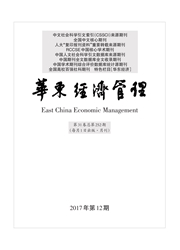

 中文摘要:
中文摘要:
相对剥夺影响劳动力迁移的相关文献主要从理论、实证及政策建议三个方面展开。理论研究表明收入、住房、社会资源等相对匮乏的个体(或家庭)会产生相对剥夺感,这种剥夺感是促进其迁移的重要原因,学者们从单期和多期角度论述了上述观点的正确性;实证研究中,通过科学的选择维度、合理地定义相对剥夺、选择恰当的计量模型来验证相对剥夺对劳动力迁移的影响,结果表明相对剥夺是影响迁移的重要解释变量;政策方面指出如果想要改变某地的迁移行为,不仅要考虑个体(或家庭)的绝对收入水平,还要考虑该地区的收入分配状况。未来应在群内和群间剥夺的多维性、情感剥夺和风险考虑等方面进行更加深入的研究。
 英文摘要:
英文摘要:
The research of the impact of relative deprivation on labor migration mainly centers on Ihree fields: theisty, empirical analysis and policy. The theoretical research shows the individual (or househoht), with the relative lack of income, housing, social resources etc., will feel relative deprivation, which is the main reason of migration. The schola~ have discussed the validity of the above viewpoint from the perspectives of both the signal and muhi period. The empirical analysis, by selecting dimension scientifically, defining relative deprivation legitimately and choosing econometric model appropriately, makes a validation on the impact of relative deprivation on labor migration. The resuh indicates that relative deprivation is an important explanatory variable of migration. In policy fieht, it points out if the government intends to alter the migration behavior somewhere, both local individual (or household) absolute income and local income distribution should be considered. The future research shouht pay more attention to muhi-deprivation in intra-group and between groups, emotion deprivation and risks consideration and so on.
 同期刊论文项目
同期刊论文项目
 同项目期刊论文
同项目期刊论文
 期刊信息
期刊信息
